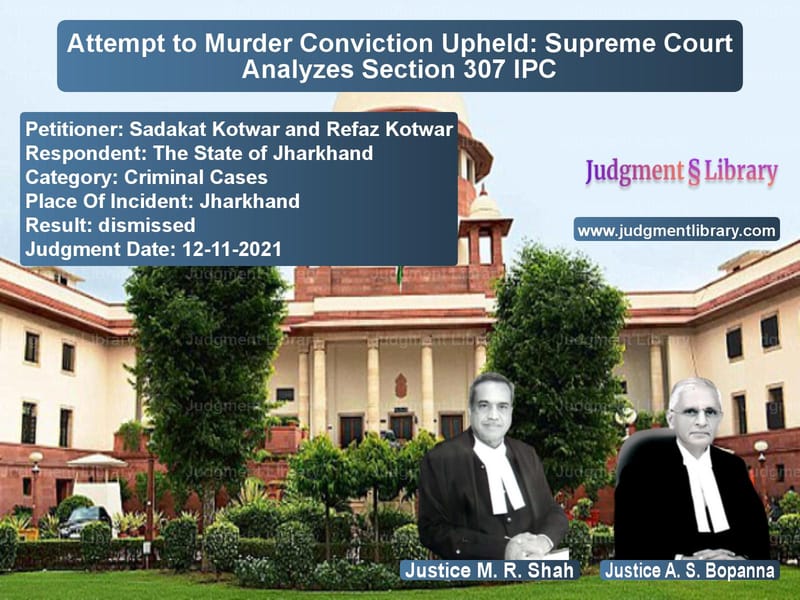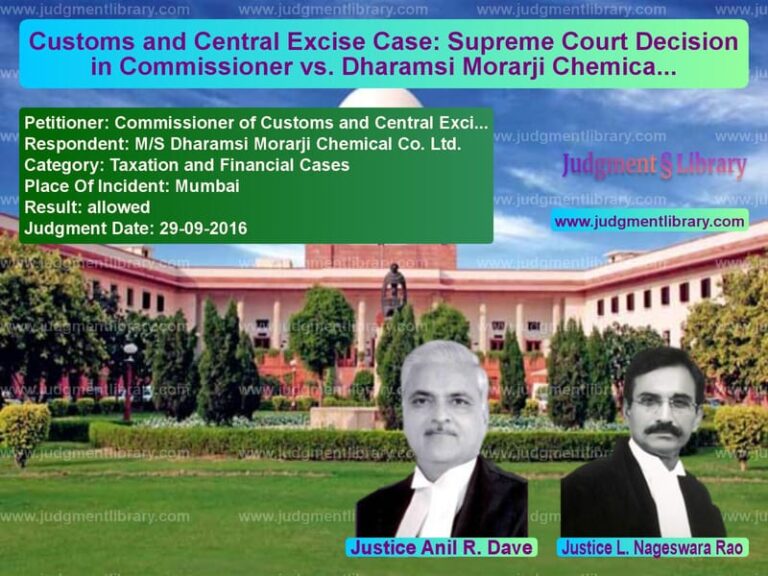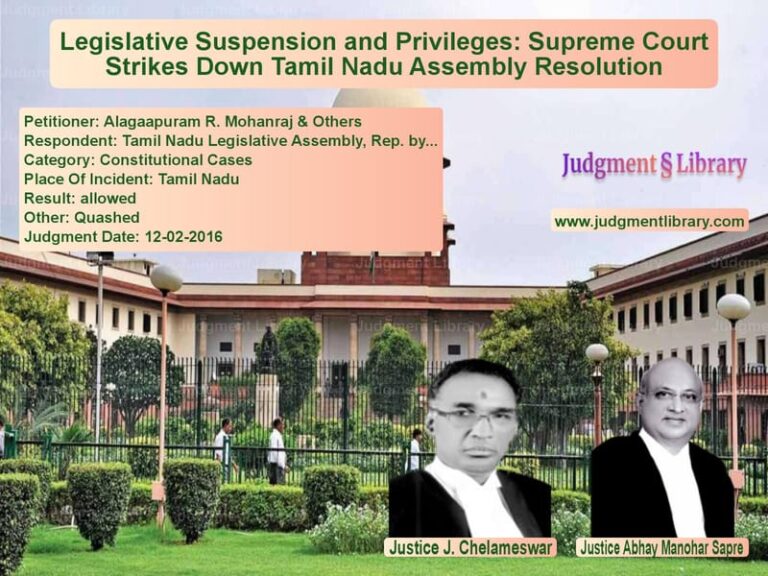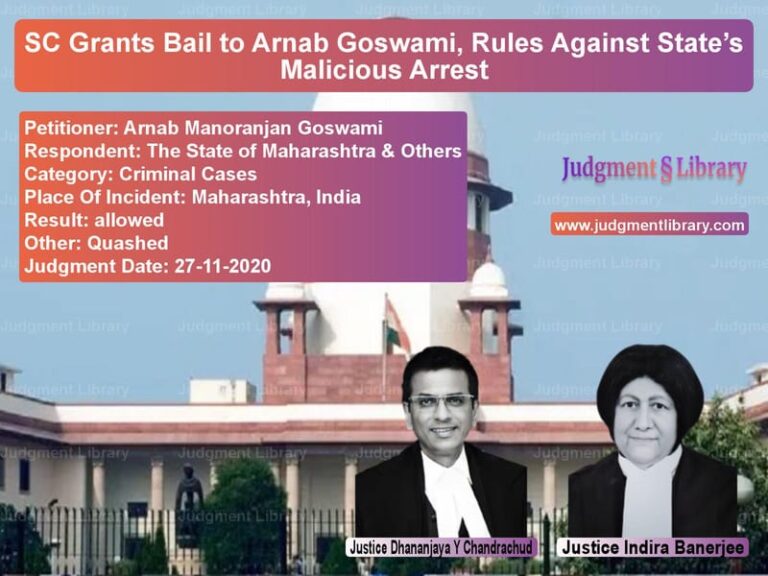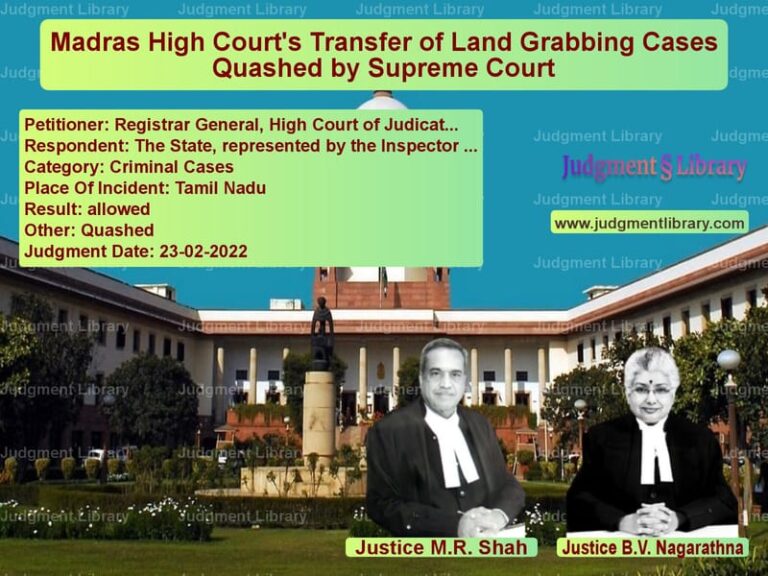Attempt to Murder Conviction Upheld: Supreme Court Analyzes Section 307 IPC
The Supreme Court of India recently upheld the conviction of two accused, Sadakat Kotwar and Refaz Kotwar, in a case of attempted murder under Section 307 read with Section 34 of the Indian Penal Code (IPC). The judgment, delivered by a bench comprising M. R. Shah and A. S. Bopanna, reinforced the principles governing serious bodily injuries inflicted with deadly weapons.
The case stemmed from an attack in which the appellants assaulted two individuals with a dagger, causing grievous injuries. The conviction was challenged in the Supreme Court after the Jharkhand High Court affirmed the trial court’s ruling.
Background of the Case
The prosecution established that the appellants had stabbed two victims, Mohd. Jamil Kotwar (PW8) and Samsera Bibi (PW7). The attack resulted in serious injuries:
- Mohd. Jamil Kotwar: Incised wound 1″x1″ with hematoma formation on the ribs.
- Samsera Bibi: Incised wound 1″x1/2″ pleura deep on the left chest.
The prosecution relied on the testimonies of these injured eye-witnesses, which were corroborated by multiple witnesses.
Supreme Court’s Observations
The Court reaffirmed that an injured eye-witness’s testimony holds great evidentiary value. Referring to the precedent in State of M.P. v. Mansingh (2003) 10 SCC 414, it held:
“The evidence of an injured eye-witness has great evidentiary value and unless compelling reasons exist, their statements are not to be discarded lightly.”
The Court dismissed the appellants’ argument that the injuries were minor and should fall under Section 323 IPC. It noted that the injuries were inflicted with a dagger on vital body parts, making Section 307 IPC applicable.
Legal Analysis of Section 307 IPC
The Supreme Court referred to Mahesh Balmiki v. State of M.P. (2000) 1 SCC 319, which held:
“A single blow may, in some cases, entail conviction under Section 302 IPC, in some cases under Section 304 IPC, and in some other cases under Section 326 IPC. The nature of the injury, the weapon used, and the circumstances in which it was inflicted are all relevant factors.”
Final Judgment
The Supreme Court rejected the appeal, affirming the conviction under Section 307 IPC. It ruled that the injuries inflicted, the use of deadly weapons, and the manner of attack left no doubt about the intent to commit murder.
This ruling serves as an essential precedent for cases involving grievous injuries inflicted with deadly weapons, ensuring that legal provisions are strictly enforced.
Petitioner Name: Sadakat Kotwar and Refaz Kotwar.Respondent Name: The State of Jharkhand.Judgment By: Justice M. R. Shah, Justice A. S. Bopanna.Place Of Incident: Jharkhand.Judgment Date: 12-11-2021.
Don’t miss out on the full details! Download the complete judgment in PDF format below and gain valuable insights instantly!
Download Judgment: sadakat-kotwar-and-r-vs-the-state-of-jharkha-supreme-court-of-india-judgment-dated-12-11-2021.pdf
Directly Download Judgment: Directly download this Judgment
See all petitions in Attempt to Murder Cases
See all petitions in Bail and Anticipatory Bail
See all petitions in Judgment by Mukeshkumar Rasikbhai Shah
See all petitions in Judgment by A. S. Bopanna
See all petitions in dismissed
See all petitions in supreme court of India judgments November 2021
See all petitions in 2021 judgments
See all posts in Criminal Cases Category
See all allowed petitions in Criminal Cases Category
See all Dismissed petitions in Criminal Cases Category
See all partially allowed petitions in Criminal Cases Category

